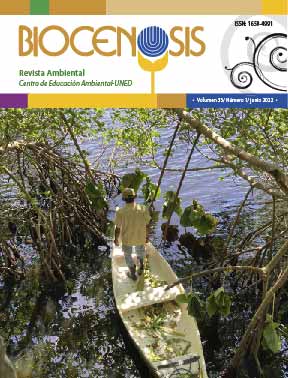Rural Community Tourism and its Contribution to Environmental and Local Heritage Management: The Case of the Isla Venado
DOI:
https://doi.org/10.22458/rb.v33i1.4288Keywords:
Rural community tourism, environmental management, environmental education, cultural heritage, archaeological tourism, historical value, participatory action researchAbstract
Rural Community Tourism (RCT) has become a development instrument for different communities in Costa Rica. Its contribution to local development is not only relegated to the economic sphere, since it also affects the environmental, cultural, and heritage management of the communities. The difference regarding such management model relies on the participation of the community and the impact on public actions that validate the success of a more participatory conservation model. It also promotes local development and includes its inhabitants in the active process of environmental protection and the conservation of cultural heritage. RCT stimulates and promotes an active participation of residents, who assume local challenges with responsibility for the execution of alternatives that help them solve their problems and influence their resolutions. This article presents a preamble to the systematization of the RCT experience in Isla Venado, in the Gulf of Nicoya, and its visible impact on local organization and management concerning environmental and cultural heritage issues.
Published
How to Cite
Issue
Section
License

This work is licensed under a Creative Commons Attribution-NonCommercial-ShareAlike 4.0 International License.
